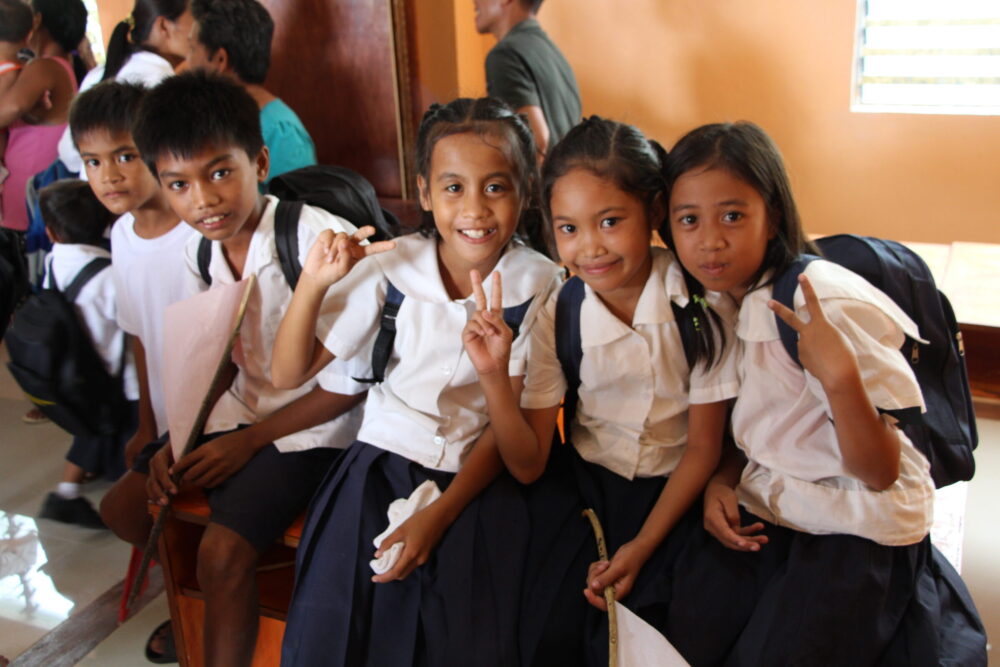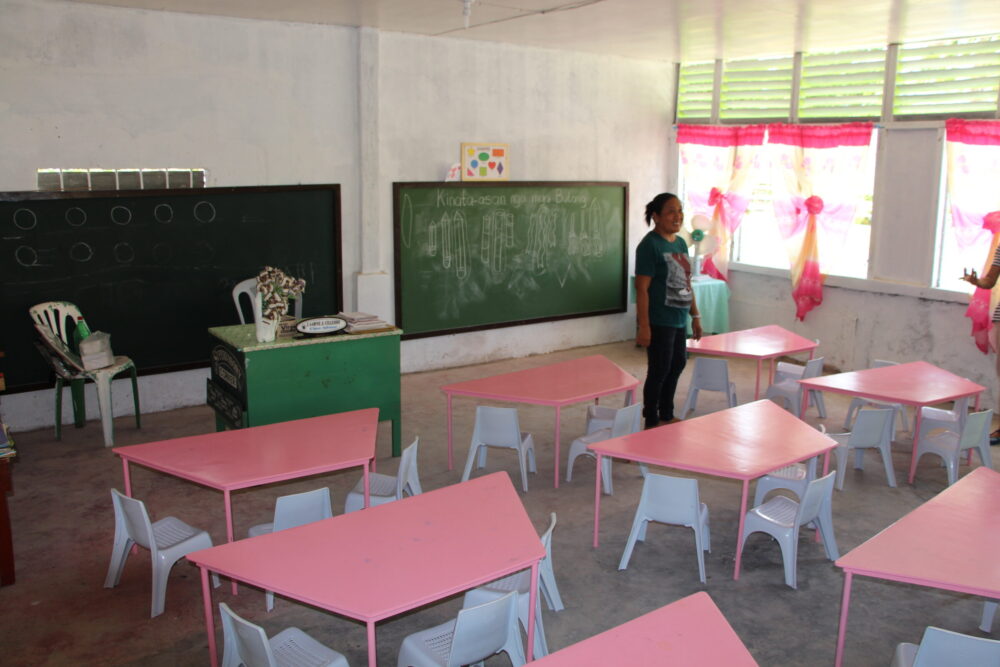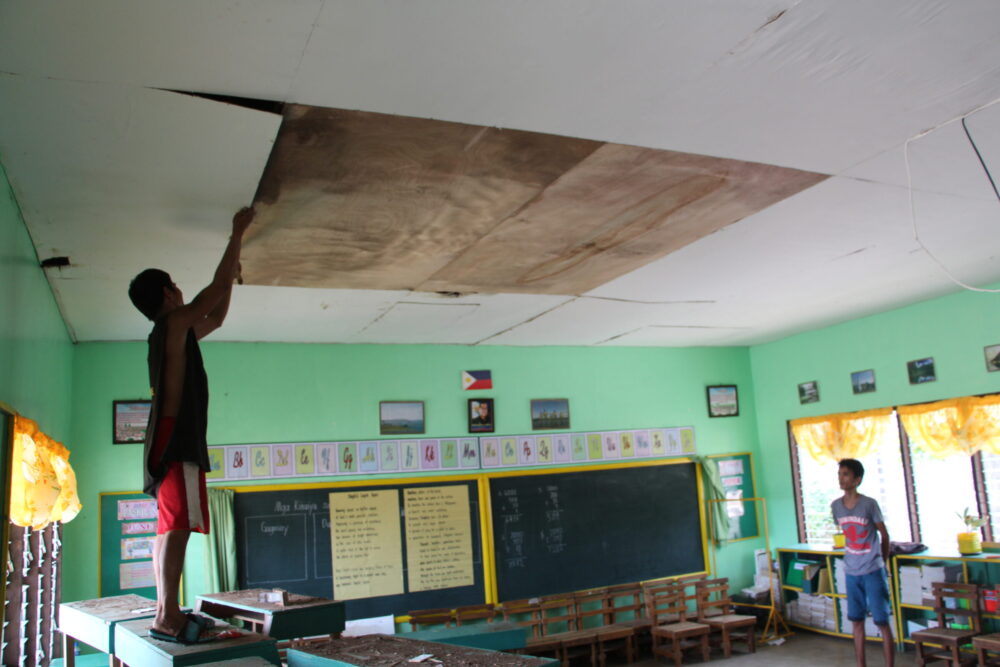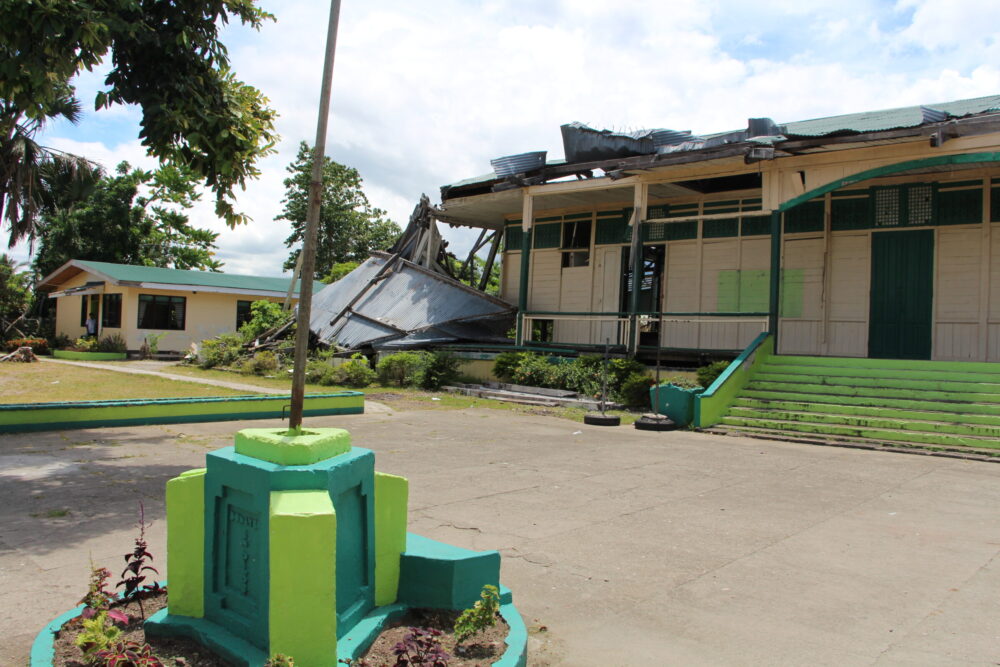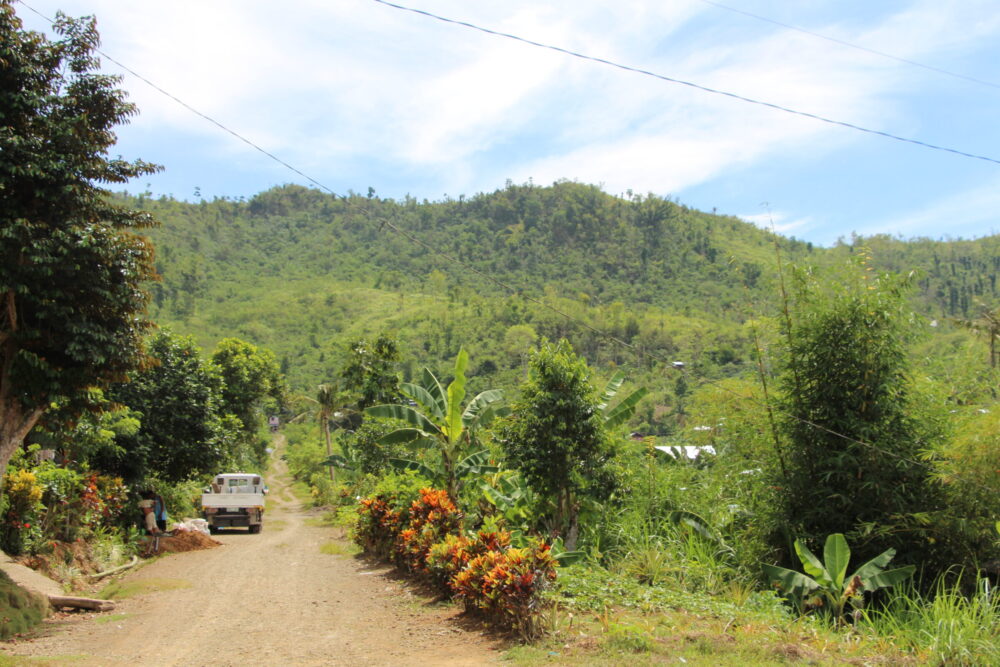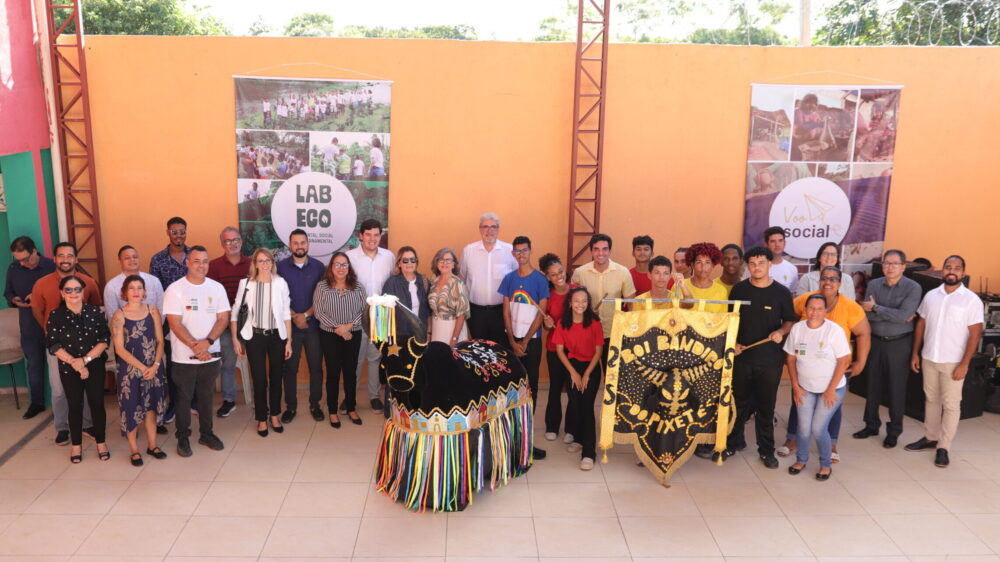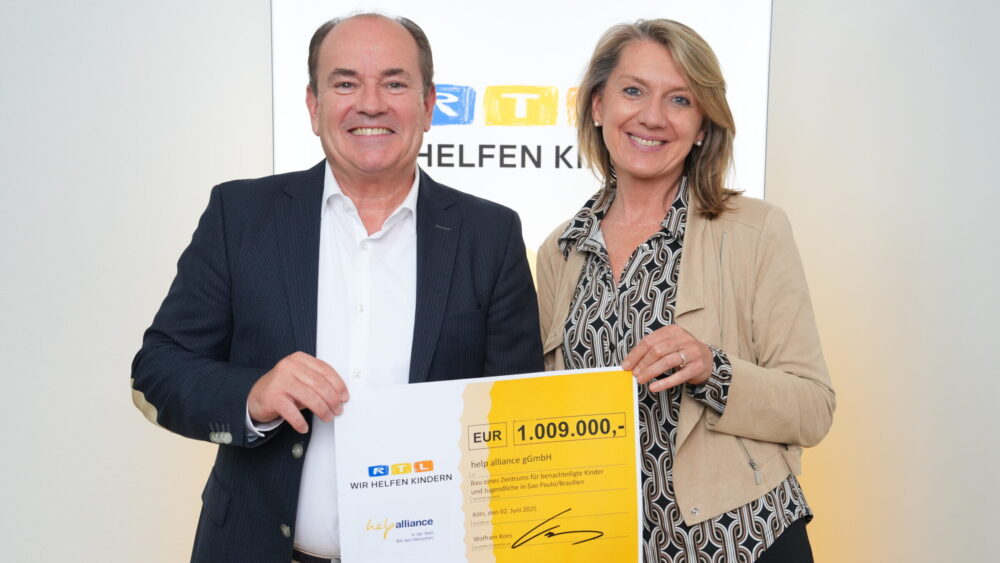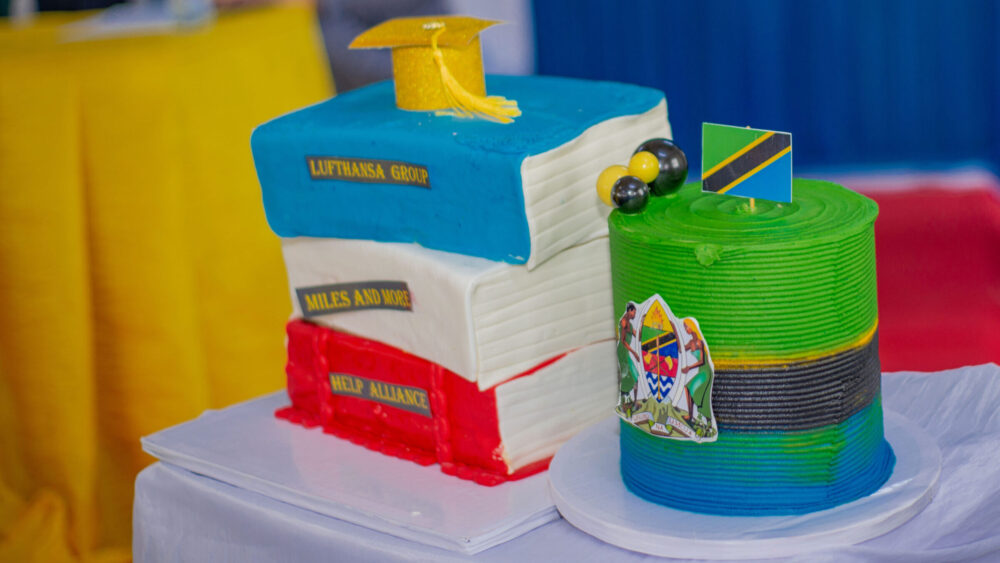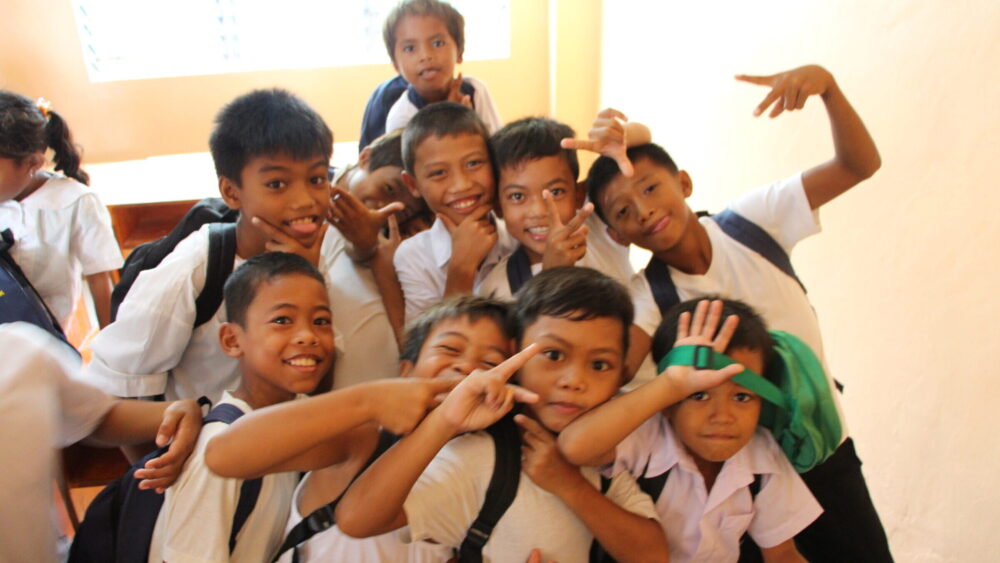
In Old Kawayan they teach again
Restart of school operations after destruction by typhoon
It was a very special day for Sister Helen, the headmistress Gresilda Berino and 80 students. One and a half years after Typhoon Haiyan destroyed large parts of the Philippine island of Leyte and also their village near the town of Tacloban, their newly built Old Kawayan Elemenatry School could finally be inaugurated. Now there is a classroom built of stone, which can be divided into four smaller rooms and will also serve as an evacuation centre during the next storms, if necessary. At the inauguration they danced and sang, talked and prayed.
Dr. Burkhard Andrich, CEO of Lufthansa Technik Philippines, then had a tip for all the students on their future career choices: “I hope that many of you will become engineers, because we need them very urgently,” said Andrich. He arrived with three representatives of the staff to symbolically hand over the keys together with help alliance and to provide all students with a practical backpack including school materials.
The construction of the new school was made possible by the Lufthansa and Lufthanseaten, who donated money in November 2013 following an appeal launched by help alliance. Almost 240,000 euros were collected and could be used for several aid projects in the region. All in all, more than thirty schools and kindergartens as well as two libraries were rebuilt or repaired in various villages on the island, and school furniture and teaching materials were also purchased. In most buildings the typhoon has torn off the roofs, the penetrating rain masses and the storm have destroyed the facilities.
Until today the consequences of Haiyan are still visible almost everywhere on the island. Destroyed huts and houses, bridges that are no longer passable, aisles with only bare tree stumps left behind still bear witness to the tremendous force of the strongest super typhoon ever measured. With more than 300 kilometres per hour it swept over the island, the following rain masses and tidal waves took the lives of 6500 people, another 1500 are still missing. Many islanders are still traumatized today, and there is no psychological support. Sister Helen remembers: “Although the storm had been observed over the sea three days before, the typhoon-experienced people could not imagine such a destructive force. For many people the consequences are still noticeable, even though you can now see newly shining corrugated iron roofs on many buildings.
“In our village almost everyone lives from fishing and agriculture, but Haiyan also destroyed the corals and mangroves, so that the fish have not returned until today.”
Part of the aid therefore goes to environmental education of the rural population. Together with long-standing Lufthansa partners, the German foundation Naturelife International, the University of Hohenheim in Stuttgart and the Visayas State University on Leyte, so-called Rainforestation Farming is being implemented in various pilot regions. The idea behind this is to reforest destroyed rainforests and thus ensure a stable income for small farmers and their families. The income has not just collapsed as a result of Typhoon Haijan, because the monocultures planted with coconut trees decades ago are now yielding less and less at the end of their lifetimes, the soil is eroding, leaving behind avalanches of scree and mud that destroy the villages and agricultural land. However, stable incomes are the basis for enabling their children to attend school and thus to have access to education. The reforestation of the rainforest requires the farmers to relearn how to handle their native trees, bushes and animals. In recent decades, they have mainly cultivated monocultures on cleared areas. “First successes are already visible” says Claus-Peter Hutter, President of the Naturelife International Foundation.
“Typhoon Haiyan had mainly destroyed the monocultures, while the areas where the Rainforestation Farming principle has been applied for several years remained almost undisturbed. About 40 families with 150 children are taking part in this project on Leyte. Meanwhile the positive effects are not only recognized and copied on some neighboring islands. Through international cooperation, corresponding projects have also been initiated in Vietnam, Indonesia, China and Sri Lanka. The participating farming families are supported and accompanied by scientists from both universities and the Foundation Naturelife International. The outstanding helpfulness of the Lufthansa employees enables help alliance on Leyte to provide educational aid on two pillars: direct investment in schools and environmental education for the rural population.

